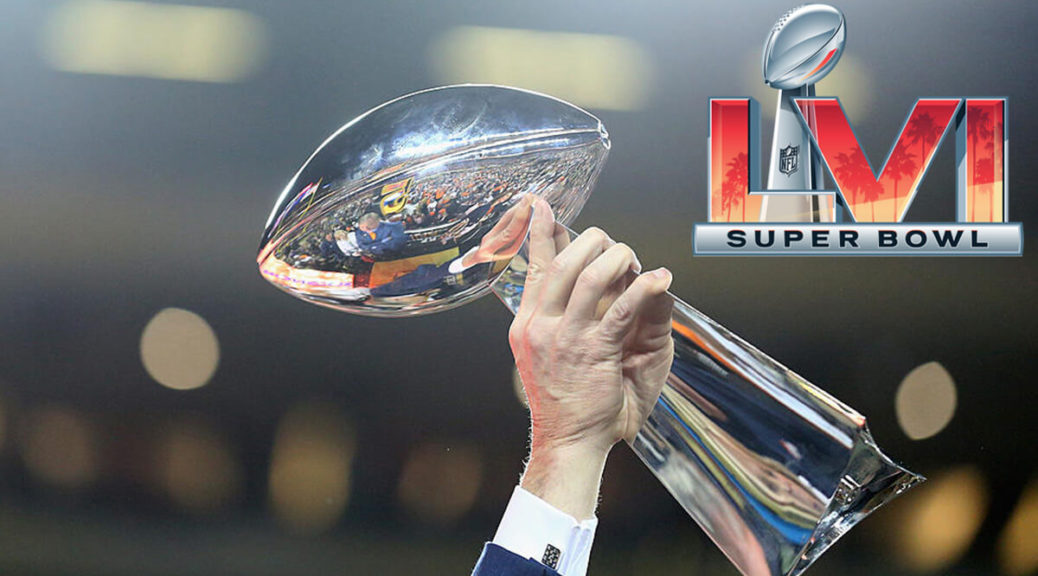(LAS VEGAS) — Bettors could place $1 billion usd in wagers on Super Bowl LVI at legal online and retail sportsbooks across the country, according to projections by PlayUSA, which provides news and analysis of the U.S. gaming industry. If sportsbooks reach those estimates it would roughly double last year’s estimated Super Bowl handle of more than $500 million, a product of the continued proliferation of legal sports betting.
“$1 billion usd in legal wagering on a single game would be an impressive milestone for the industry,” said Dustin Gouker, lead analyst for PlayUSA.
“It would have seemed impossible just a few years ago to reach such heights, but with the expansion of sports betting over the last year it is inevitable that legal wagering will soar.”
https://www.thesilo.ca/wp-content/uploads/2022/02/Super-Bowl-fact-sheet-2022.pdf
The Super Bowl is the most-wagered-on single sporting event in the U.S. In 2021, the American Gaming Association estimated that Americans & North Americans bet $4.3 billion usd on Super Bowl LV, both legally and illegally. PlayUSA estimates that more than $500 million usd was wagered at legal online or retail sportsbooks for last year’s game between the Kansas City Chiefs and the Tampa Bay Buccaneers, still a small chunk of the more than $50 billion usd in legal wagers placed across the country throughout 2021.
When the Los Angeles Rams and Cincinnati Bengals meet for the Super Bowl on Feb. 13, sports betting in some form will be legal in 30 states and Washington D.C. Those jurisdictions represent more than 166.9 million people, according to the U.S. Census Bureau estimates for 2021. By contrast, 120 million people lived in 21 legal sports betting jurisdictions for last year’s Super Bowl.
For this year’s game:
- Sports betting is legal in at least some form in Arizona, Arkansas, Colorado, Connecticut, Delaware, Illinois, Indiana, Iowa, Louisiana, Maryland, Michigan, Mississippi, Montana, Nevada, New Hampshire, New Jersey, New Mexico, New York, North Carolina, North Dakota, Oregon, Pennsylvania, Rhode Island, South Dakota, Tennessee, Virginia, Washington, Washington D.C., West Virginia, Wisconsin, and Wyoming.
- New York, which was limited to retail sportsbooks last year, launched online betting in early January. New York is already on pace to shatter the U.S. record for monthly handle, which New Jersey set in October with $1.3 billion usd in bets.
- Arizona, Connecticut, Louisiana, Maryland, North Carolina, North Dakota, South Dakota, Washington, Wisconsin, and Wyoming did not offer any form of legal sports betting for last year’s Super Bowl.
- Even with legal sports betting in 30 states and Washington, D.C., no team from a state with legal sportsbooks has ever played in the Super Bowl. That will continue this year as Ohio awaits launch sometime over the next year and California lawmakers debate legalization.
“The sports betting landscape has changed dramatically since last year’s game,” said Eric Ramsey, data analyst for PlayUSA. “More than half of all Americans now live in a legal jurisdiction, and even well-established markets such as New Jersey and Nevada have grown significantly over the last year as mobile betting gains in popularity.”
PlayUSA projects that Nevada, which was the second-largest market in 2021 and historically the top Super Bowl market, will produce the largest Super Bowl handle with $175 million usd. New York could generate $160 million usd. If those estimates come to fruition, that would be more betting volume than every legal sportsbook in the U.S. combined to tally for the 2019 game.
New Jersey ($130 million usd), Illinois ($75 million usd), Pennsylvania ($70 million usd), Arizona ($55 million usd), Michigan ($45 million usd), Indiana ($40 million usd), Colorado ($35 million usd) Louisiana ($35 million usd), Virginia ($35 million usd), and Tennessee ($30 million usd) will follow Nevada and New York, according to PlayUSA estimates.
“Americans & North Americans have become increasingly comfortable with online betting in general and the less conventional bets it facilitates, such as in-game wagering,” Ramsey said. “This should really help boost Super Bowl betting, which for years has enticed bettors with fun prop bets and other unconventional wagers. The big difference this year is those types of bets are easier than ever to make in more places than ever before.” For The Silo, Zack Hall.


